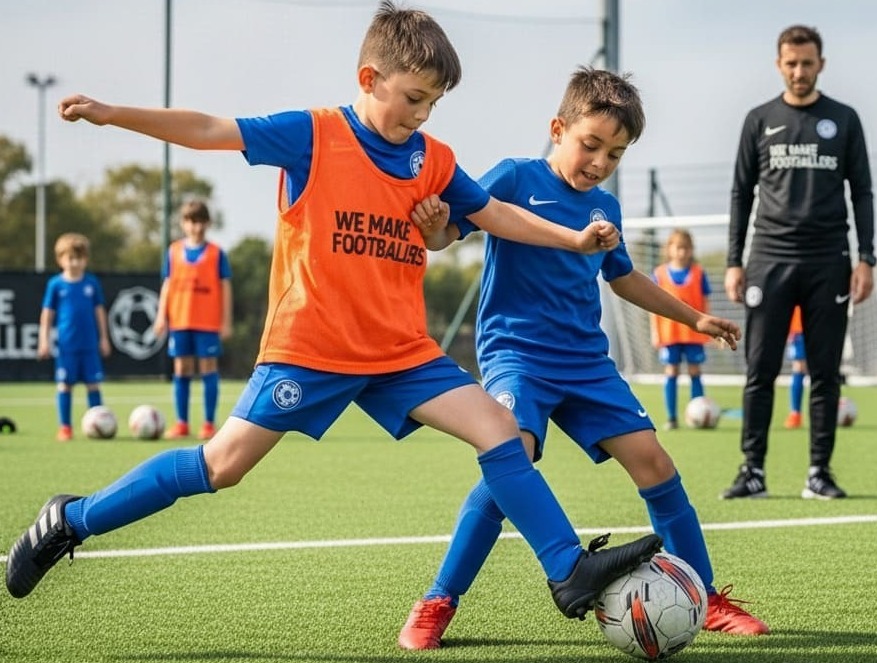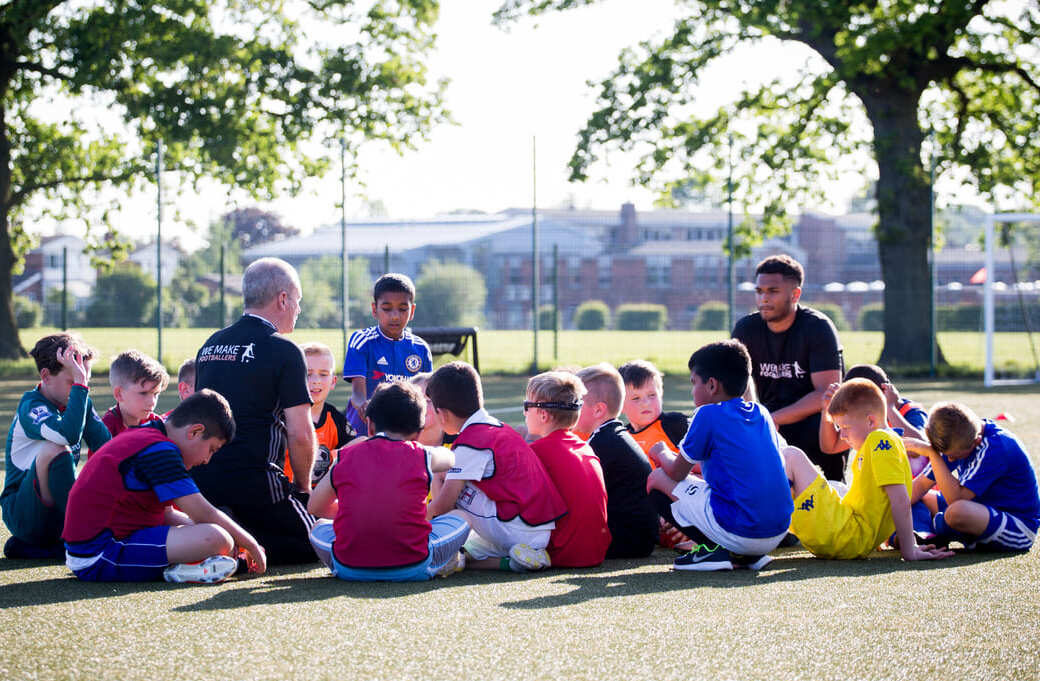Psychological Preparation of Young Football Players: How to Cope with Pressure and Failures
Understanding Psychological Preparation in Young Football Players
Football isn’t just about physical skill; it’s also about developing confidence, focus, and resilience. At We Make Footballers, psychological preparation is woven into every session, helping children aged 4–12 not only learn football but also grow emotionally. Whether it’s coping with a missed goal or staying calm during a match, young players benefit from an environment where encouragement matters just as much as achievement.
The Impact of Pressure and Failures on Young Footballers
Excitement and nerves often go hand in hand for children on match day or even during training. Many young footballers feel anxiety, fear of failure, or worry about disappointing others. Recognising these feelings early helps children stay enthusiastic and resilient. At We Make Footballers, small groups and a supportive approach ensure every child feels comfortable, included, and safe—even when they make mistakes.
Key Psychological Skills for Young Players
Psychological development is one of the four pillars of the FA Four Corners Model, which We Make Footballers follows. Essential skills include the ability to stay focused, bounce back from setbacks, set personal goals, and stay motivated. Whether it’s staying positive after missing a pass or concentrating despite distractions, these abilities support young players both on and off the pitch.
How Self-Esteem Influences Young Football Players
Self-esteem plays a key role in a child’s football journey. Children who believe in themselves are more willing to try new techniques, keep practising, and listen to feedback. At We Make Footballers, a nurturing atmosphere builds confidence through positive reinforcement, teamwork, and celebrating every effort, not just victories.
Boosting Self-Esteem Through Positive Reinforcement
Parents and coaches can foster strong self-esteem by praising participation, effort, and kindness. Celebrate when a child turns up to training, supports a teammate, or tries a new move. Feedback at We Make Footballers is framed positively, turning “Don’t do that” into “Let’s try this together.” This supportive feedback helps children feel proud, valued, and excited to keep playing.
Managing Competitive Anxiety in Young Footballers
Nervousness before a game is normal, but for some children, competitive anxiety—worrying thoughts or physical tension—can feel overwhelming. At We Make Footballers, coaches are trained to recognise and support children experiencing anxiety, creating a calm, friendly environment that reduces pressure.
Recognising Anxiety Symptoms in Young Players
Signs of anxiety might include restlessness, tension, reluctance to attend training, or complaints of stomach aches. Children may talk a lot about worries or avoid playing altogether. By spotting these signs, parents and coaches at We Make Footballers can offer gentle support and encourage open conversations about feelings.
Effective Techniques to Reduce Anxiety
Simple techniques can help children manage nerves. Try these approaches:
- Mindful Breathing: Inhale for three counts, hold, then exhale slowly for three counts.
- Positive Visualization: Encourage your child to imagine a great pass or enjoying time with teammates.
- Tension Release: Have your child squeeze their fists tightly for five seconds, then relax. Repeat as needed to relieve muscle tension.
These routines, when practised regularly, help make football a positive and enjoyable experience.
Developing Resilience and Coping Skills
Learning how to recover from mistakes is vital for young athletes. At We Make Footballers, children are taught that setbacks are opportunities to grow. By focusing on what they learned—not just what went wrong—children build resilience, confidence, and a love of the game that lasts.
The Role of Coaches and Parents in Building Resilience
Coaches and parents play a crucial role in helping children bounce back. Ask your child what made them proud at training or what they’d like to try next time. At We Make Footballers, every effort is celebrated, and mistakes are seen as natural stepping stones toward progress.
Goal Setting and Motivation in Young Football Players
Setting small, achievable goals keeps children motivated and helps track progress. At We Make Footballers, children are encouraged to set personal milestones like “trying every drill” or “cheering for a teammate” rather than focusing solely on winning. This approach nurtures motivation and joy in each session.
Helping Your Child Set and Achieve Goals
Work together to choose fun, achievable goals for each training. Write them down or use a simple reward chart. Celebrate each success, however small, and adjust goals as your child grows to keep the experience lighthearted and encouraging.
Encouraging Coachability and Positive Team Dynamics
Coachability—the willingness to learn and work with others—is key to growth in football and beyond. At We Make Footballers, small groups and individual attention foster an environment where every child’s effort is valued, and friendships thrive regardless of skill level.
Fostering Positive Relationships Between Parents, Coaches, and Players
Building connections between parents, coaches, and players strengthens the football journey. At We Make Footballers, parents are kept informed and involved. Talking regularly with coaches about your child’s progress helps create a friendly, supportive atmosphere where every child feels they belong.
Creating a Supportive Environment for Psychological Growth in Football
A safe, welcoming environment is essential for children to thrive. At We Make Footballers, sessions are designed to be inclusive, friendly, and reliable, with regular communication for parents and a focus on enjoyment as well as skills. This balance ensures children feel safe, happy, and eager to return.
What to Look for in a Youth Football Program
Consider these qualities when choosing a football programme:
- Accessible locations with flexible scheduling
- Coaches who support all skill levels equally
- Comfortable spaces for parents during sessions
- Open communication and quick responses to questions
We Make Footballers offers all these features, ensuring children and parents are part of a supportive community.
Long-Term Benefits of Psychological Preparation in Young Athletes
Starting psychological preparation early equips children with tools for football and life. At We Make Footballers, children build confidence, learn to navigate challenges, and develop friendships. Over time, they grow into well-rounded individuals who enjoy football for many years.
Supporting Your Child Beyond the Field
Encourage your child to explore other activities, try new things, and talk openly about their experiences. Celebrate who they are beyond achievements. By offering this support, you help your child grow confident, kind, and ready to embrace every opportunity—on and off the pitch.



